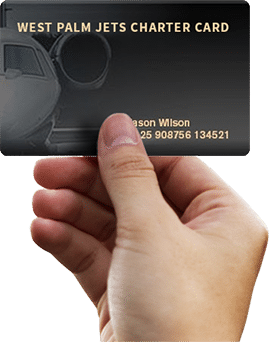
An FBO (Fixed-Base Operator) is a private jet terminal in an airport. It could be a small lounge in a general airport terminal or a multi-purpose facility that is separately built from the main airport which offers a variety of services for the aircraft, private jet customers, and the crew.
The customers of a private jet do not go to the airport or use the airport facilities that are shared by the airline passengers. These customers instead use the FBO, an acronym for ‘’Fixed Base Operator”.
What happens on arriving at FBO?
Customers that books a private FBO will be given their various details when they arrive at the airport. The number of FBO differs with the size of the airport. Some airports have one while some have two or more choices for their customers. In these cases, the private jet customers will select their preference among the different FBO choices.
The FBO is usually the place where the customers meet the reception staff at the deck and the captain. Most of the time, the private jet customers move through the FBO in minutes that they don’t even notice it so much. There is also a specific area meant for customers waiting for others with most of them having light refreshments, bathroom facilities, and Wi-Fi.
Some Airports also have a large and specialized airport that offers hotel rooms and luxury concierge for customers that wants to spend some time there. The FBOs also offers different services for travelers with babies, pets, or young children.
All FBOs does unobstructed and quick immigration and checks after the pre-clearance is done. The Customers will then board their aircraft that is most times parked outside the FBO. The customers might drive their vehicle or given a courtesy ride to the airport ramp. The FBOs also offers a variety of services to the aircraft and crew; they include crew accommodation, crew rest area, de-icing, refueling, and aircraft maintenance.
The History of FBO
The term ‘FBO’ goes way back to the 1920’s, the days of the unregulated civil aviation. There was an ex-military aircraft available in the post-war years. A group of transient pilots known as the ‘barnstormers’ provided locals with passenger flights, airshows, and aerobatic displays. This group would land anywhere in the united states including the farmer’s field at the town edge rather than airports. The nature of their job requires them to travel a lot to the aircraft and no fixed location.
In 1926, the US Air Commerce Act was enforced. The law imposed the regulation of training standards and aircraft maintenance for the pilots. The pilots and mechanics are then given a fixed address and established registered businesses. That was when the term Fixed Base Operator/Operations was used to separate them from the old transient aviators.

The term FBO was exclusively used to for aircraft operators that are based in the airport until recently. If a private flight wants to land in an airfield that’s not their home, they need to make proper arrangement for the flight to land with the FBO. These are all done in a non-commercial manner.
The evolvement of the industry moved private jet flights busier; therefore a third-party organization is then developed to cater for customers and crews and to manage facilities and types of equipment like refueling, hangars, security, car parking, and lounges.
The Current Status of FBO
The FBO industry has taken a significant shift in the past few years. The FBO companies were controlled by independent and smaller enterprises in the past, but now, the company has a growing consolidation that is set to continue. The biggest name in the FBO company is ‘’Signature Flight Support” with more than 200 branches worldwide.

A successful FBO company is defined as the one that has its own identity and niche no matter the size. The different companies tend to compete on fuel pricing, VVIP services for royalty, and high profile travelers.
Disclaimer: All Aircraft And Air Carriers Selected By West Palm Jets are fully Certified by The Federal Aviation Administration and The U.S. Department of Transportation under part 135 regulations. Carriers are Solely Responsible for The Air Transportation Arranged on Behalf Of West Palm Jets’ Clients. West Palm Jets Does not OWN or Operate Any Aircraft. West Palm Jets is not a direct or indirect Air carrier. All flights chartered through West Palm Jets are Operated by Part 135 Air Carriers.


